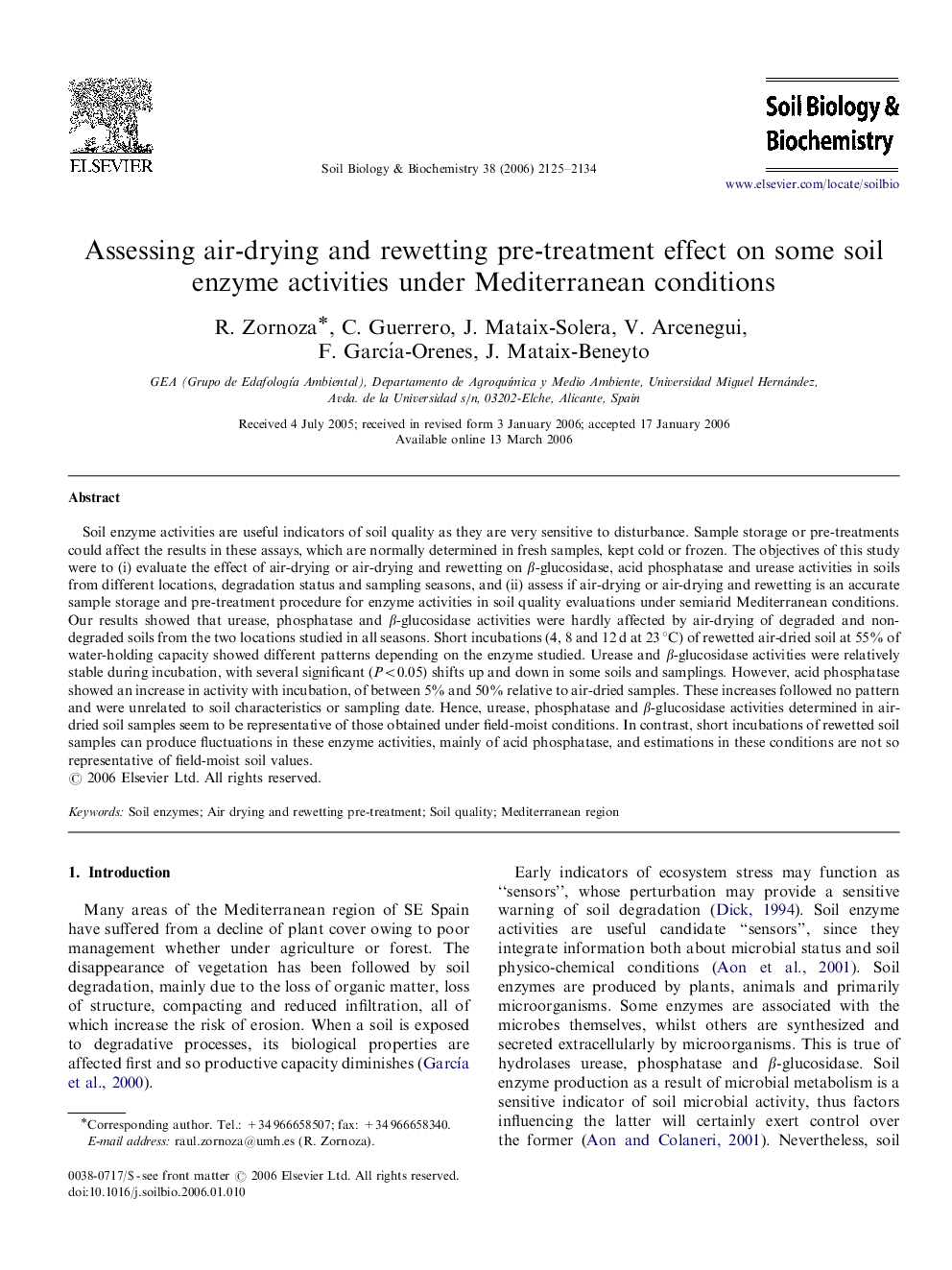| Article ID | Journal | Published Year | Pages | File Type |
|---|---|---|---|---|
| 2027178 | Soil Biology and Biochemistry | 2006 | 10 Pages |
Soil enzyme activities are useful indicators of soil quality as they are very sensitive to disturbance. Sample storage or pre-treatments could affect the results in these assays, which are normally determined in fresh samples, kept cold or frozen. The objectives of this study were to (i) evaluate the effect of air-drying or air-drying and rewetting on β-glucosidase, acid phosphatase and urease activities in soils from different locations, degradation status and sampling seasons, and (ii) assess if air-drying or air-drying and rewetting is an accurate sample storage and pre-treatment procedure for enzyme activities in soil quality evaluations under semiarid Mediterranean conditions. Our results showed that urease, phosphatase and β-glucosidase activities were hardly affected by air-drying of degraded and non-degraded soils from the two locations studied in all seasons. Short incubations (4, 8 and 12 d at 23 °C) of rewetted air-dried soil at 55% of water-holding capacity showed different patterns depending on the enzyme studied. Urease and β-glucosidase activities were relatively stable during incubation, with several significant (P<0.05) shifts up and down in some soils and samplings. However, acid phosphatase showed an increase in activity with incubation, of between 5% and 50% relative to air-dried samples. These increases followed no pattern and were unrelated to soil characteristics or sampling date. Hence, urease, phosphatase and β-glucosidase activities determined in air-dried soil samples seem to be representative of those obtained under field-moist conditions. In contrast, short incubations of rewetted soil samples can produce fluctuations in these enzyme activities, mainly of acid phosphatase, and estimations in these conditions are not so representative of field-moist soil values.
